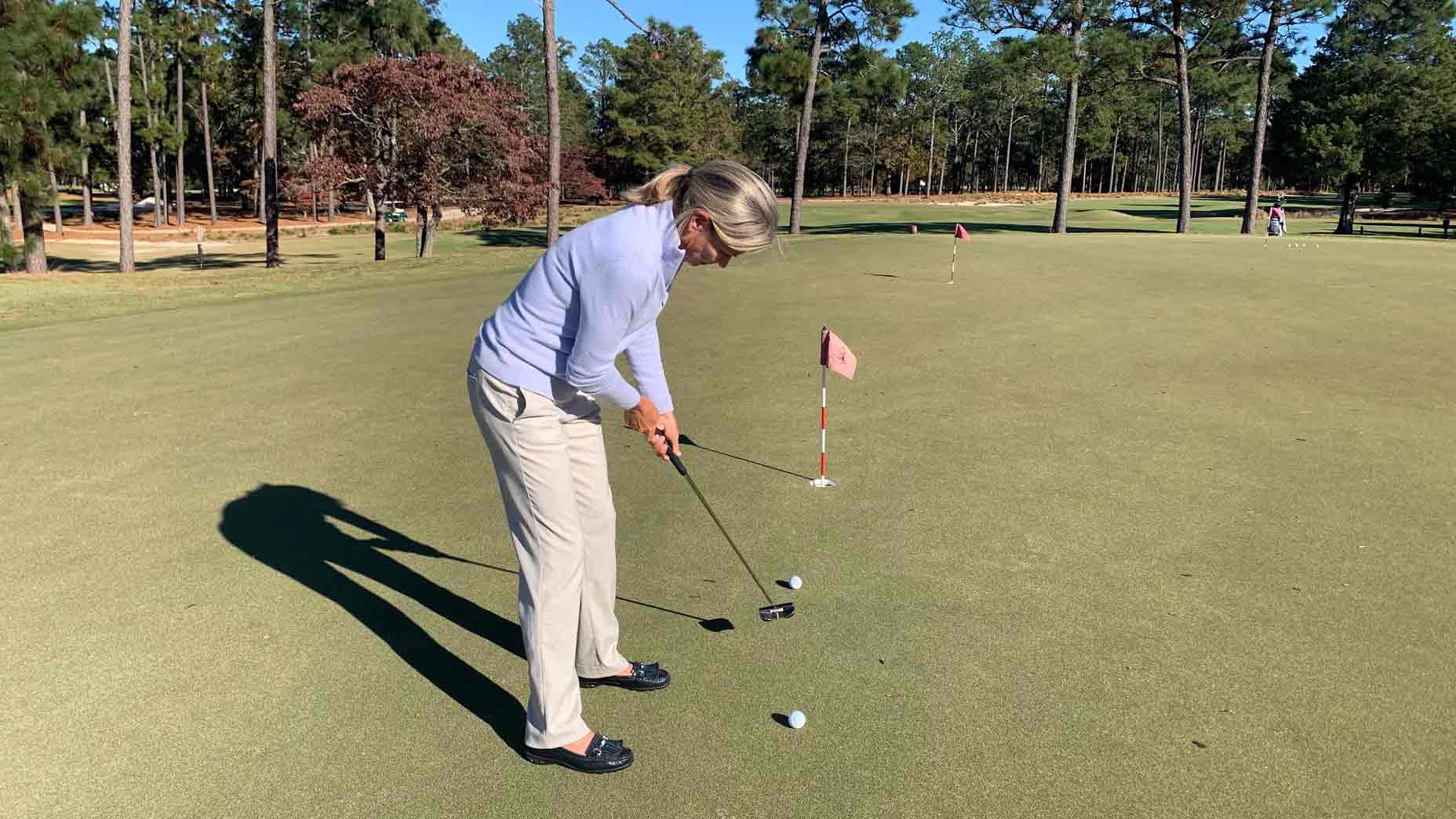Even if you spend ample time practicing your putting, it can still be difficult to hone in your speed on long lags. Twenty-footers are one thing, but what do you do when you’re faced with a putt of 40+ feet? A three-putt may seem inevitable, but it doesn’t have to be!
At GOLF’s recent Top 100 Teacher Summit at Pinehurst, Top 100 Teacher Kellie Stenzel shared one of her favorite lag-putting drills with me, and this one is tailored to dialing in your distance control.
In short, if you tend to struggle with hitting the ball too hard or too soft on long putts, one way to increase your consistency is to systematically calibrate your backstroke length to the putt distance required.
“You can make it as super-simple or as complex as you want,” Stenzel said. The real key is making it personal to your game.
For most people, taking one “big” step equates to about three feet. On the practice green, drop a few balls and experiment with how big a backstroke you need to hit a putt hard enough to go three feet.
“Ask yourself: How big of a backstroke do you need for one step, two steps, five steps, ten steps?” Stenzel said. “You can walk off your putt to study the break, and be counting steps in the meantime.”
Stenzel said that the step method works for some, but can be inconsistent for others. If you find yourself in the latter camp, Stenzel suggests equating every inch of your backstroke to three feet of putt. So a nine-step putt means you need a nine-inch backstroke.
If you have trouble visualizing the backstroke length, bring a metal yardstick to your next putting practice session so you can experience what those inches feel like in real life.
The beauty of this method, Stenzel said, is that the roll the putt calls for is built into the stroke. A small stroke for short putts will naturally produce a softer roll, while the opposite is true for longer putts.
Give it a try, and enjoy your newfound consistency!
Need help unriddling the greens at your home course? Pick up a custom Green Book from 8AM Golf affiliate Golf Logix.
For more golf tips from Kellie Stenzel, click here.
